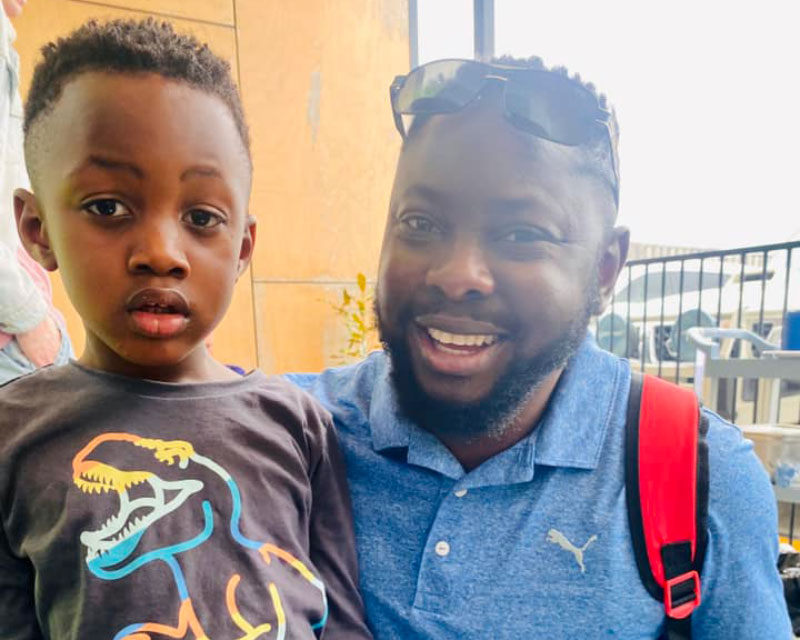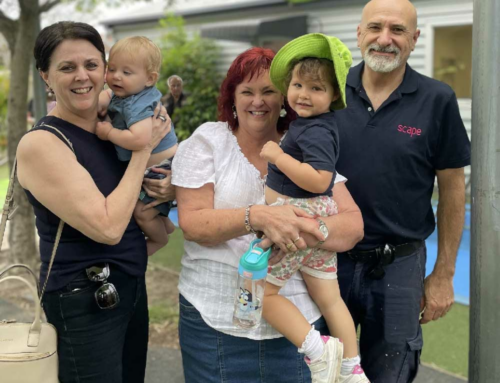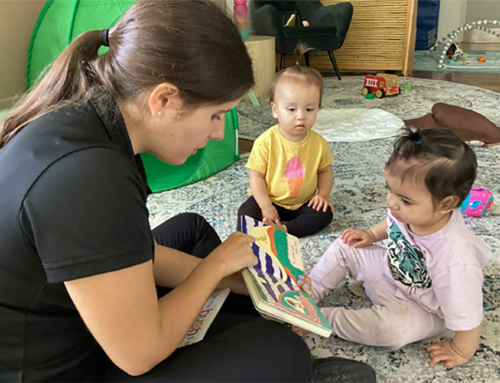Parent involvement in a child’s early childhood education results in quality learning and care outcomes. It leads to better social, emotional and learning outcomes.
As a parent, you play an integral role in your child’s early childhood education and care. From setting achievable goals to celebrating successes, from providing guidance to creating moments of connection – the power of your presence is tremendous.
At Petit Early Learning Journey, we believe that when families talk, we should listen, understand and partner with them on the things that matter most to them. We are committed to engaging with parents in their journey towards fostering active learning for their children.
In this article, we explore several ways families can get involved in their children’s education and care and make the most out of this precious time of development.
- The benefits of family involvement in early childhood education.
- How to get involved in your child’s education.
- Tips for parents and educators to work together.
- Successful parent involvement.
- The importance of communication between parents and educators.
- Ways to build a partnership between home and school.

Benefits of parent involvement in early childhood education
Working in partnership with the education and care providers in your child’s early years has countless benefits. The EYLF recognises that when families and education and care services work together, the quality of care improves and children flourish.
A genuine partnership has the potential to positively influence children into their adult life. When a child sees their family and teachers working together, it strengthens their sense of security and belonging. Children learn that healthy relationships are important.
When it comes to learning, we recognise families as a child’s first teacher. Children form a secure attachment with their family who are role models for their behaviour and skills. Families influence many things such as a child’s language, rituals and social skills.
Understanding something from another person’s point of view is not always easy in a partnership, but honest, respectful, two-way communication builds trust. When families are positively involved in their child’s education and care:
- They feel supported, respected and valued.
- They share decision-making with educators.
- Educators can make informed decisions about children.
- They support educators to understand better their child’s needs and interests, family’s home life and culture and traditions.
- They help foster a sense of community.
Children develop better social-emotional skills and resilience when parents and educators work together. There is also a continuity of learning between the home and the service, where practices from home can be reflected at the centre improving children’s sense of security.
When early childhood educators and families build positive relationships, it has an enormous influence on a child’s world. It assists in advocating for children’s rights, making sure their strengths are acknowledged and their voices are heard in decision-making.

How to get involved in your child’s education
Families can become involved in their children’s early childhood education by:
- Participating in events.
- Helping with projects such as donating recyclable materials.
- Volunteering at their early childhood education and care centre.
- Attending parent-educator meetings.
- Connecting with their child about their day.
- Talking with educators about important issues.
- Sharing stories about their family and their child with their educators.
Sharing information with your early childhood education team about your child’s ideas, feelings and adventures will give rise to positive experiences.
Tips for parents and educators to work together
Parents and educators can create an effective partnership by regularly communicating with each other, discussing the child’s progress in different areas of development, collaborating on strategies and goals, being mindful of cultural differences, respecting one another’s opinions and focusing on enriching the child’s educational experience.
We understand that sometimes it is not easy to stop and chat with an educator when dropping off your child or picking them up, even though in-person conversations are often some of the most valuable.
At Petit Early Learning Journey, we have several communication strategies that we employ when communicating with families including:
- Daily updates and stories via the Storypark app
- Emails – an easy alternative and often available at our families’ fingertips
- Phone calls
- Monthly newsletters
- Information evenings
- Open days (often held on the weekend)
- Parent-Teacher meetings
- Kindergarten information evenings
When families communicate what they want for their children including their expectations of the educators, environment and curriculum, our teams can work more effectively. Family partnerships are built through trust, shared decision-making and open and respectful communication.

Successful parent involvement
When parents are involved in their child’s education and care they feel respected and valued. Involvement is more than attending events at the centre. It’s about:
- Having a better understanding of your child’s learning and development
- Being able to give meaningful feedback and input into their child’s learning
- Building relationships with other families and educators, creating a sense of community
- Understanding what early childhood educators do
- Feeling supported and encouraged in your role as the parent
- Being comfortable asking questions and sharing information
It is important for families to feel involved, respected and valued. It not only helps create a strong rapport but also ensures the best possible start
During the year our centres hold several special events, in which families are encouraged to participate. Each centre plans its events depending on the local context and support from its community. You might be involved in celebrating:
- Mothers’ Day
- Fathers’ Day
- Special Person’s Day
- Grandparents’ Day
- Australia Day
- Remembrance Day
- Lunar New Year
- NAIDOC Week
- Anzac Day
- Diwal
- Easter
- Christmas
- Open days
- Children’s Week
- Harmony Week
- National Reconciliation Week
- National Sorry Day
- Graduations
- End of year celebrations
Our teams and children love to celebrate diversity and inclusion. When families share their cultures and backgrounds, it makes celebrations meaningful.
You can also get involved by coming to your child’s centre to read books to the children, share stories about your job or a clever pet, to provide children with a cooking experience or join them on an exciting excursion.

The importance of communication between parents and educators
Communication is key for a successful parent-educator relationship. Families should always feel welcome to reach out to educators with questions or concerns, while educators should make an effort to respond in a timely manner.
Regular and timely communication helps ensure the child’s needs are being met and any issues can be addressed quickly.
Ways to build a partnership between home and school
Families and educators should take the time to get to know each other better, support one another’s efforts, provide open feedback, and strive for common goals.
It is also important that families feel comfortable participating in their child’s education. By building a partnership between home and school, parents can be confident their child is receiving the best possible care and guidance.

Partner with Petit Early Learning Journey
At Petit Early Learning Journey, we are advocates for strong family-educator partnerships. We understand that parents play an important role in helping children reach their full potential. That’s why we strive to create a positive and supportive environment for parents and educators.
We invite families to take an active role in their child’s early childhood education and explore the various ways they can get involved. Our experienced team is available to answer any questions you have or provide support where needed.
Are you ready to connect with a centre that values family partnerships?






